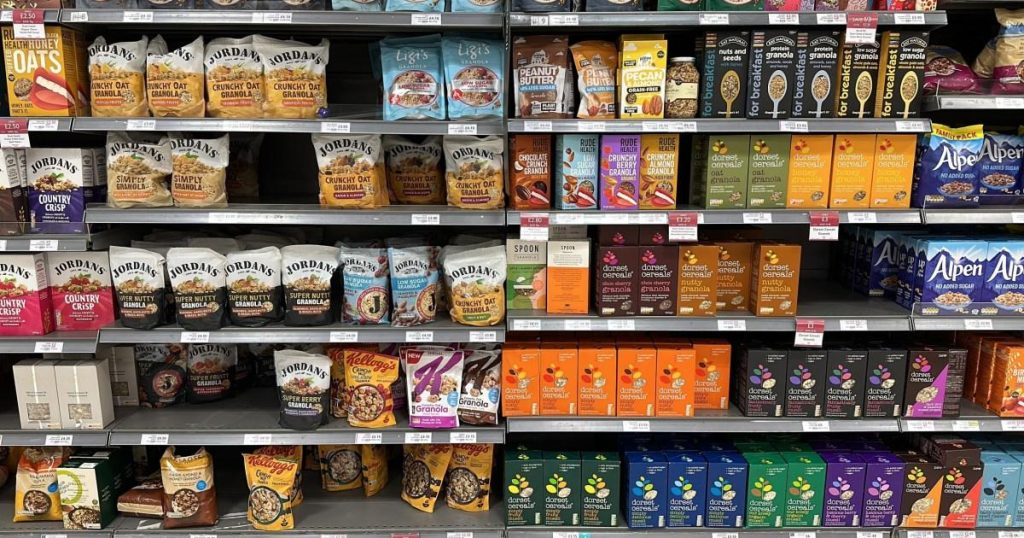Preparing for Severe Winter Weather: Stocking Your Pantry and Ensuring Safety
The onset of the new year has brought with it a wave of severe winter weather, prompting warnings and advisories across the UK. The Met Office has issued alerts for rain, wind, ice, and snow, forecasting potential disruptions such as power outages, flooding, and isolation of rural communities. In the face of these challenging conditions, preparedness is key to ensuring safety and well-being. Stocking up on essential supplies and taking necessary precautions can significantly mitigate the impact of prolonged periods of inclement weather.
One of the most crucial aspects of winter weather preparedness is ensuring an adequate supply of food. Power outages can render refrigerators and freezers unusable, leading to spoilage of perishable items. Therefore, focusing on non-perishable food items that can be stored safely at room temperature is essential. These shelf-stable options provide sustenance during times when access to fresh food may be limited or impossible.
Recommended non-perishable food items for your winter weather stockpile include bread, a staple that can be stored for several days and provides essential carbohydrates. UHT or powdered milk offer a longer-lasting alternative to fresh milk, ensuring a source of calcium and other nutrients. Tinned goods such as soups and stews are versatile, easily prepared, and provide a balanced meal. Snack foods like crisps, crackers, and cookies in sealed packaging offer convenient and readily available sources of energy. Cereal and granola provide quick breakfast options or snacks, while dried pasta and jars of sauce allow for simple yet satisfying meals.
Beyond food, other essential supplies contribute to safety and comfort during severe weather. Torches, batteries, and candles are invaluable during power cuts, providing essential light. Power banks for charging electronic devices can maintain communication and access to information. Staying informed about weather updates and heeding official advisories is also paramount.
The potential consequences of severe winter weather can be significant, ranging from power outages and flooding to road closures and disruption of essential services. Being prepared for these eventualities can lessen their impact and ensure safety and well-being. By stocking up on essential supplies, individuals and families can mitigate the challenges posed by prolonged periods of inclement weather.
The disruption caused by heavy snowfall or blizzard conditions can extend beyond inconvenience, potentially leading to isolation and limited access to resources. Being snowed in for several days can cut off access to grocery stores and other amenities, making the availability of stored food crucial. A well-stocked pantry with shelf-stable items provides a safety net, ensuring that nourishment is available even when venturing out is impossible.
Preparing for severe winter weather is an act of proactive responsibility, safeguarding against potential hardships and ensuring the well-being of oneself and one’s family. By taking the necessary steps to prepare, individuals can face the challenges of winter with greater confidence and resilience, knowing that they have the resources to weather the storm. The advice provided is crucial not only for individual households but also for community preparedness. Encouraging neighbors and community members to take similar precautionary measures can strengthen collective resilience in the face of adverse weather.
The importance of early preparation cannot be overstated. Acting before the onset of severe weather allows individuals to procure essential supplies without the added pressure and potential scarcity that can arise during an emergency. By stocking pantries and gathering necessary items in advance, individuals and communities can mitigate the risks associated with winter storms and ensure a greater degree of safety and comfort.
The potential for power outages during winter storms underscores the importance of having alternative light sources and methods for charging electronic devices. Torches, batteries, candles, and power banks become essential tools for maintaining communication, accessing information, and ensuring basic functionality within the home. These seemingly small preparations can make a significant difference in managing the challenges of a power outage.
The list of recommended non-perishable food items offers a versatile and balanced approach to nutrition during emergency situations. The inclusion of staples like bread, milk alternatives, tinned goods, snacks, cereal, pasta, and sauce allows for a variety of meal options, catering to different dietary needs and preferences. This diversity in food choices contributes not only to physical nourishment but also to psychological well-being during stressful periods.
Beyond the immediate practicalities of food and supplies, preparation also involves staying informed and connected. Monitoring weather forecasts, heeding official advisories, and checking on neighbors, especially those who are vulnerable or live alone, are essential acts of community responsibility. These actions contribute to a collective sense of preparedness and support, fostering resilience in the face of adverse conditions.
The message of preparedness is not simply about accumulating supplies but about adopting a mindset of proactive responsibility. It is about recognizing the potential for disruption and taking concrete steps to mitigate its impact. By preparing in advance, individuals and communities can transform potential hardship into a manageable challenge, ensuring safety, comfort, and resilience during times of severe winter weather.











